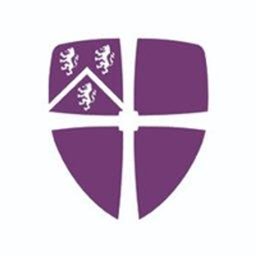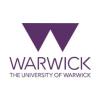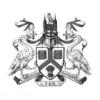Teaching Fellow In Russian Studies
ENG, GB, United Kingdom
Job Description
Teaching Fellow in Russian Studies
(
Job Number:
25000575
)
School of Modern Languages and Cultures
Grade 7: - 38,249 - 45,413 per annum pro rata
Fixed Term - Part Time
Contract Duration
9 MonthsContracted Hours per Week
17.5Working Arrangements
TBCClosing Date
06-Jul-2025, 5:59:00 PMDisclosure and Barring Service Requirement
Not Applicable.The University
A globally outstanding centre of teaching and research excellence, a collegiate community of extraordinary people, a unique and historic setting - Durham is a university like no other.
As one of the UK's leading universities, Durham is an incredible place to define your career while enjoying a high-quality work/life balance. We are home to some of the most talented scholars and researchers from around the world who are tackling global issues and making a difference to people's lives.
We believe that inspiring our people to do outstanding things at Durham enables Durham people to do outstanding things in the world.
Our University Strategy is built on three pillars of research, education and wider student experience, but also on our keen sense of community and of inspiring others to achieve their potential.
Our University Strategy
Our Purpose and Values
Find out more about the benefits of working at the University and what it is like to live and work in the Durham area on our Why Join Us? - Information Page
The Role and Department
The School of Modern Languages and Cultures
The School of Modern Languages and Cultures (MLAC) at Durham University seeks to appoint a talented individual to the role of Teaching Fellow in Russian Studies. The appointment will be on a fixed term part-time (0.5 FTE) basis for 9 months starting on 1 September 2025 or as soon as possible thereafter, and we invite applications from those with research expertise in Russian Studies. Applications are particularly welcome from candidates with interests in literary studies, visual culture and translation studies. The post offers an exciting opportunity to make a major contribution to the development of internationally excellent teaching while allowing you the opportunity to progress and embed your career in an exciting and progressive institution. While independent research is not part of the role, the postholder will be able to participate in the School's research community.
MLAC is one of the largest and most successful such Schools in the UK. It brings together research in Arabic, Chinese, French, German, Hispanic Studies, Italian, Japanese and Russian Studies. Our reach spans Europe, the Arab world, Russophone Eurasia, Hispanic America, and East Asia, and their mutual socio-cultural, intellectual and linguistic relations. Our expertise ranges from the medieval and early modern periods through to the contemporary era, with particular strengths in visual arts and culture, the relationship between the sciences and the humanities, textual scholarship, gender and sexuality studies, critical and cultural theory, travel literature, creative writing, and translation. Indeed, translation -- understood in its broad sense of transmission, interpretation and circulation of cultural forms, ideas and histories -- underpins the School's collective practices.
The depth and diversity of our interests are reflected in a range of interdisciplinary degree programmes at undergraduate and postgraduate levels. We offer undergraduate degrees in Modern Languages and Cultures, Chinese and Japanese Studies, and Visual Art and Film. Our taught postgraduate degrees offer advanced training in Translation Studies, Visual Culture and Languages, Literatures and Cultures. Meanwhile, the Centre for Foreign Language Study (CFLS) delivers an Institution-Wide Language Programme to students across the University via credit-bearing and non-credit bearing modules, giving as many of our students as possible the opportunity to learn languages in the way and at the level best suited to them. More information on the School can be found on our webpages at: https://www.durham.ac.uk/departments/academic/modern-languages-cultures/
Russian Studies
Russian Studies at Durham University is one of the best performing academic units with this specialism in the UK. It is consistently placed among the top-ranked equivalent departments in major national league tables. In 2024, it was ranked 3rd in the Good University Guide, contributing strongly to Durham University's top-twenty placing for Arts and Humanities in the Times Higher Education World Reputation Rankings.
There are currently eight full time members of staff in Russian Studies at Durham. They specialise in a wide range of research topics in Russian, Soviet and post-Soviet culture and history including poetry, musical culture, cinema and the visual arts, literary and critical theory, history of the sciences and professions, material culture, gender, and historical linguistics. This expertise is reflected across a wide range of general and specialist undergraduate modules. Staff in Russian also contribute to the School's cross-cultural taught Masters programmes, including the MA in Visual Culture and the MA in Translation Studies, and supervise PhD and Masters by Research projects on Russian, Slavonic, and Russophone-related topics.
Russian language courses are taught at all levels, from beginners to advanced, by highly experienced language instructors. In the first year, students who have no prior experience of studying Russian take an intensive ab initio course. Those with an A-level or equivalent in Russian are enrolled on an intermediate course. Both strands build on this in the second-year core language courses, intensive for the post-beginners and standard for the post-A-level cohort. All students then normally spend their third year abroad in a Russian-speaking country currently at one of our partner institutions in the Baltic states or Kyrgyzstan. In the final year, in addition to the core language option, students can take an optional language course in Russian for Professional Communication.
More detailed information on the unit, its staff and modules, is available at: https://www.durham.ac.uk/departments/academic/modern-languages-cultures/undergraduate-study/language-areas/russian-studies/ and related webpages.
The Role
Applications are invited for a Teaching Fellow in Russian Studies. The post is at 0.5 FTE for a fixed term of 9 months only, beginning on 1 September 2025 or as soon as possible thereafter. As the post is funded by a Leverhulme Trust award, it is not anticipated that it will be extended beyond this fixed term.
The successful applicant will have excellent Russian and English language skills, as well as research expertise and teaching experience in Russian Studies. You should be able to teach Russian literature, culture, and history in a holistic way across different periods, with particular emphasis on the 19th and 20th centuries. You will be fully integrated in the Russian Studies team within Durham University's School of Modern Languages and Cultures and you will be expected to contribute to the delivery of teaching on relevant undergraduate and postgraduate programmes, to include curriculum development, the convening of modules, and all aspects of assessment.
Teaching Fellowships offer the opportunity of valuable experience to those early in their academic careers and the University is keen to maximise the benefit to as many people as possible. The post of Teaching Fellow will involve a significant teaching load, which may extend into the summer period, and there may be related scholarship and the opportunity for administrative duties which relate to education and pedagogy.
The University provides a working and teaching environment that is inclusive and welcoming and where everyone is treated fairly, with dignity and respect. Candidates will be expected to demonstrate these key principles as part of the assessment process.
Key Responsibilities
Teach modules in appropriate learning environments at undergraduate/postgraduate levels, demonstrating an increasing awareness of different approaches to and methods of teaching and supporting student learning. Demonstrate the ability to manage own teaching and designing, planning and writing teaching materials. Lead some aspects of modules and contribute to modules led by others by collaborating with colleagues on course development. Develop and deliver an inclusive curriculum and make an active contribution to an inclusive community in which diversity is embraced and celebrated. Seek and take on board feedback on teaching and engage with others in CPD. Undertake undergraduate and taught postgraduate dissertation supervision. Build internal contacts and participate in networks to exchange information. Start to engage in scholarship (the creation, development and maintenance of the intellectual infrastructure of subjects and disciplines) e.g. develop online teaching resources. In addition to Board of Studies, membership of some departmental committees and professional body memberships. Student support, assessment of academic performance and provision of feedback, dealing with student disciplinary matters and complaints. Undertake effectively and efficiently any administrative role allocated by your Head of School. To contribute to fostering a collegial and respectful working environment which is inclusive and welcoming and where everyone is treated fairly with dignity and respect. To engage in wider citizenship to support the department and wider discipline. To engage in continuing professional development by attending relevant training and development courses.
Durham University is committed to equality diversity, inclusion and values
Our collective aim is to create an open and inclusive environment where everyone can reach their full potential and we believe our staff should reflect the diversity of the global community in which we work.
As a University equality, diversity, and inclusion (EDI) are a key part of the University's Strategy and a central part of everything we do. We also live by our values and our Staff Code of Conduct. At Durham we actively work towards providing an environment where our staff and students can study, work and live in a community which is supportive and inclusive. It's important to us that all of our colleagues are aligned to both our values and commitment to EDI.
We welcome and encourage applications from members of groups who are under-represented in our work force including people with disabilities and people from racially minoritised ethnic groups.
We are committed to equality: if for any reason you have taken a career break or periods of leave that may have impacted on the volume and recency of research outputs, such as maternity, adoption or parental leave, you may wish to disclose this in your application. We also understand that the Covid-19 pandemic will have had differential impacts on different people and welcome information on this if you wish to share it. The selection committee will recognise that this may have reduced the quantity of your research accordingly
The University has been awarded the Disability Confident Leader status. If you are a candidate with a disability, we are committed to ensuring fair treatment throughout the recruitment process. We will make adjustments to support the interview process wherever it is reasonable to do so and, where successful, reasonable adjustments will be made to support people within their role.
Contact Information
School contact for academic-related enquiries
For academic enquiries related to the post please contact Dr Dusan Radunovi?, Director of Studies in Russian, email dusan.radunovic@durham.ac.uk.
Contact information for technical difficulties when submitting your application
If you encounter technical difficulties when using the online application form, we prefer you send enquiries by email. Please send your name along with a brief description of the problem you're experiencing to e.recruitment@durham.ac.uk
University contact for general queries about the recruitment process
For general queries, please contact e.recruitment@durham.ac.uk
How to Apply
To progress to the assessment stage, candidates must evidence each of the essential criteria required for the role in the person specification below. It will be at the discretion of the recruiting panel as to whether they will also consider any desirable criteria, but we would urge candidates to provide evidence for all criteria.
While some criteria will be considered at the shortlisting stage, other criteria may be considered later in the assessment process, such as questions at interview.
Submitting your application
We prefer to receive applications online. We will update you about your application at various points throughout the selection process, via automated emails from our e-recruitment system. Please check your spam/junk folder periodically to make sure you have not missed any of our updates.
What to Submit
All applicants are asked to submit:
a CV and covering letter which details your experience, skills and achievements in meeting (or the potential to meet) the criteria set out above a statement as to your aspirations as a Teaching Fellow in terms of your motivations as a teacher, your teaching philosophy and methodologies, and your approach to innovation in teaching and assessment (up to 750 words)
We will notify you on the status of your application at various points throughout the selection process, via automated emails from our e-recruitment system. Please check your spam/junk folder periodically to ensure you receive all emails.
Next Steps
Short-listed candidates will be invited to the University, either virtually or in-person and will have the opportunity to meet key members of the Department. The assessment for the post will normally include a presentation to staff and students in the Department followed by an interview and we anticipate that the assessments and interviews will take place over two days in or around mid-June 2025.
In the event that you are unable to attend in person on the date offered, it may not be possible to offer you an interview on an alternative date.
Please note that in submitting your application Durham University will be processing your data. We would ask you to consider the relevant University Privacy Statement Job Applicants/Potential Job Applicants - Durham University which provides information on the collation, storing and use of data.
When appointing to this role the University must ensure that it meets any applicable immigration requirements, including salary thresholds which are applicable to some visas.
Person Specification
Candidates applying for a grade 7 post will have recently completed or be concluding their PhD and, while they may have limited direct experience of the requirements for the post, they must outline their experience, skills and achievements to date which demonstrate that they meet or that they have the potential to achieve the belowcriteria
Essential Criteria:
A good first degree in Russian Studies A PhD (or be close to submission) in Russian Studies or a closely related subject, or equivalent demonstrable practitioner experience which may include appropriate certification and/or membership of a relevant professional body. Experience of teaching and examining at University level with positive student feedback gained if available. Experience of contributing to the development and delivery of high-quality teaching and/or assessment of learning, including the design and creation of successful learning environments and curricula. Demonstrable ability to participate in the collegial/administrative activities of an academic department and/or discipline. Excellent oral and written communication skills with the ability to engage with a range of students and colleagues across a variety of forums.
Desirable Criteria:
Experience of successfully developing innovative teaching methods for the design/delivery of high quality teaching. Research expertise in Russian Studies that complements the specialisms of existing staff Experience of successfully working in an administrative role within an organisation or department. Organisation of, or participation in, student-oriented extra-curricular activities related to the subject Experience of providing high quality one-to-one student supervision. Evidence of work undertaken (or which would be undertaken) in preparation for teaching and keeping up to date with developments in the subject area, such as: active membership and engagement with a professional body; demonstrable innovation in educational practice; publication in a scholarly journal or relevant professional publication; Attending and presenting internal and/or external seminars or at a regional conference; and/or Materials/curriculum development for wider use in a department.
* Candidates may have, or should have the ability to attain the rank of Fellow of HEA.
Beware of fraud agents! do not pay money to get a job
MNCJobs.co.uk will not be responsible for any payment made to a third-party. All Terms of Use are applicable.
Job Detail
-
Job IdJD3238275
-
IndustryNot mentioned
-
Total Positions1
-
Job Type:Part Time
-
Salary:Not mentioned
-
Employment StatusPart Time
-
Job LocationENG, GB, United Kingdom
-
EducationNot mentioned




